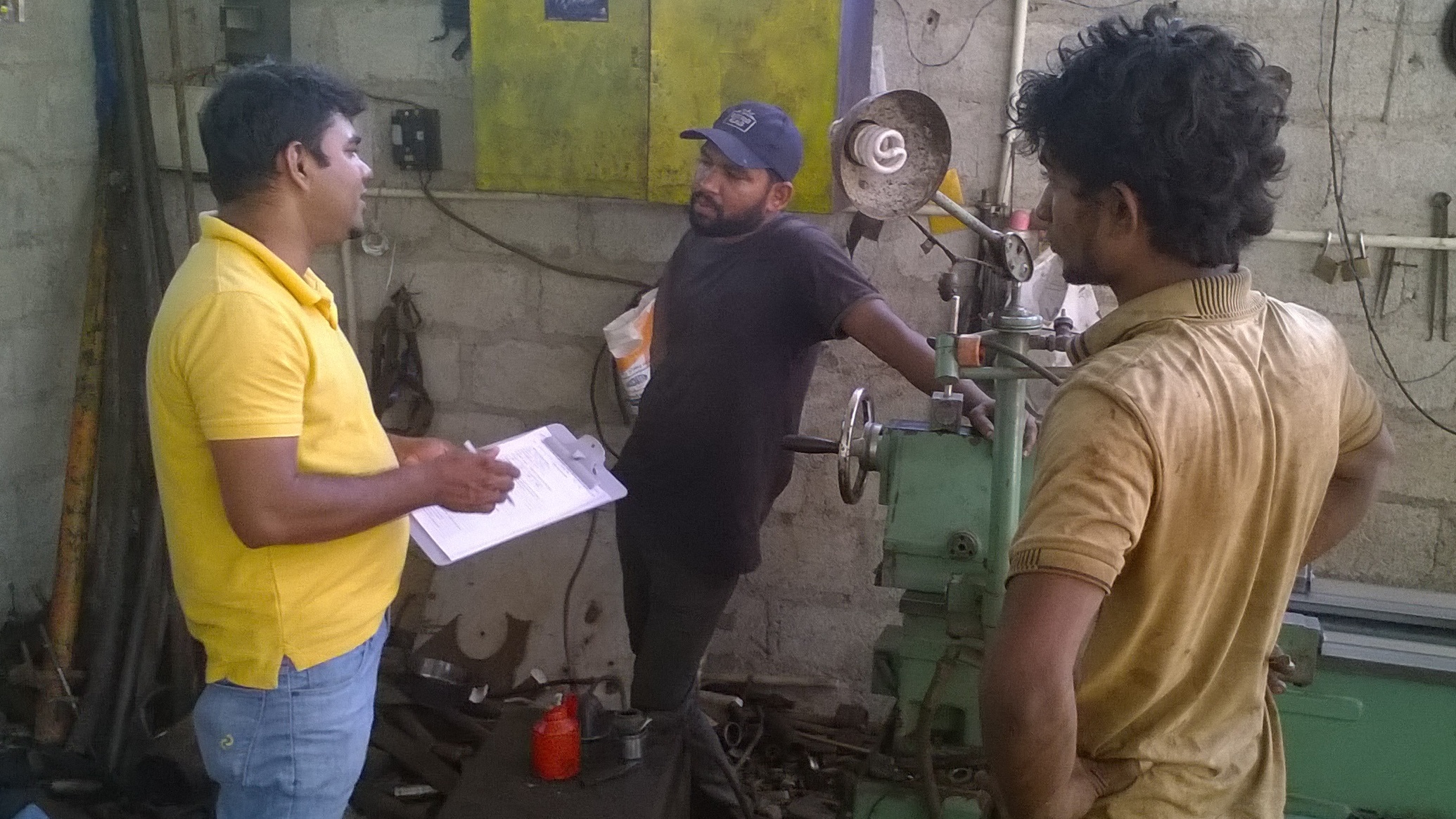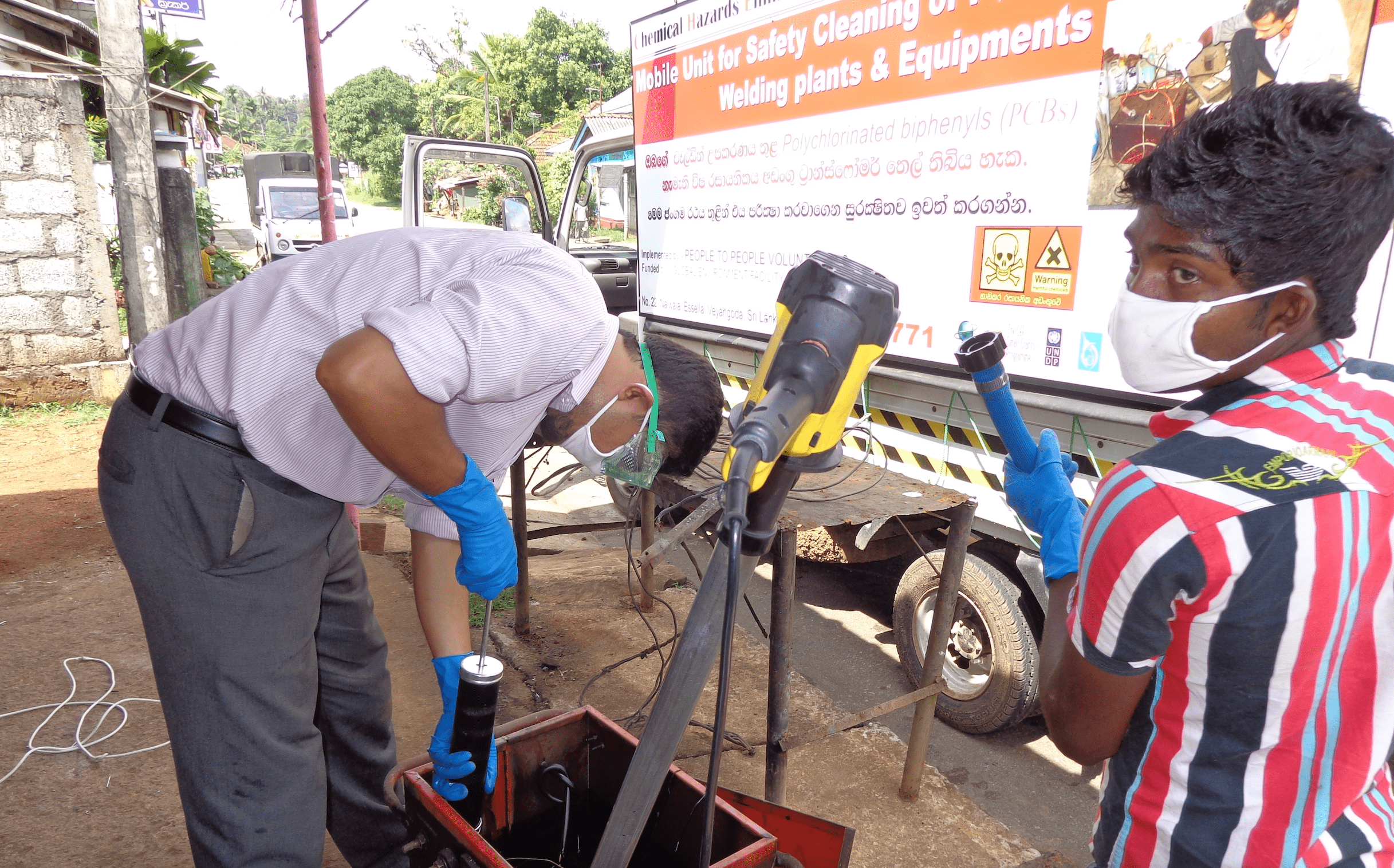

Sri Lanka’s welders learn of dangers of contaminated oil
02 February 2021 Charles ARTHUR

In line with its commitment to the Stockholm Convention, Sri Lanka is working to protect the environment and human health from the effects of polychlorinated biphenyls (PCBs) and other man-made chemicals known as Persistent Organic Pollutants (POPs).
PCBs were commercially produced worldwide on a large scale between the 1930s and 1980s, and have been used in many industrial applications such as electricity transformers and capacitors. However, PCBs have dangerous effects on the environment and human health. They are carcinogenic and have been linked to developmental disorders in children.
Sri Lanka’s Ministry of Mahaweli Development and Environment (MMDE) is working with the United Nations Industrial Development Organization (UNIDO) to introduce and implement a PCB management system to eliminate releases from PCB waste stockpiles and equipment containing PCBs.
One part of this Global Environment Facility-funded project addresses a major challenge presented by a lack of public awareness of the dangers posed by PCBs. One particular area of concern is that potentially contaminated used oil from electricity transformers is being sold to welders, garage owners and people using oil for domestic purposes.
Investigations by People to People Volunteers (PTPV), a non-governmental organization in Sri Lanka, found that transformer oil is being used as a coolant in many of the country’s welding plants. Due to lack of awareness of the ill-effects of PCBs, there is a strong possibility of self- and cross-contamination among welders and their families.


UNIDO and the MMDE have been working with PTPV to raise awareness in the small-scale welding sector of the impacts of PCBs on human health and the environment.
PTPV members have visited over 3,500 small-scale welders all around Sri Lanka and have used mobile units equipped with computers and large screens to share information to individuals and groups. The awareness-raising campaign included the distribution of brochures in the Sinhala and Tamil languages, street dramas, and radio broadcasts and newspaper articles.
Additional services offered by the PTPV, such as testing welding oils and offering oil replacement when the oil proved to be PCB-contaminated, have contributed to an increased understanding among small-scale welders about the critical importance of changing their practices.
“Preventing further dispersion of PCB chemicals within the country is a great challenge. Taking one step at a time is the only way," says PTPV’s Anuradha Prabath.
As a result of the project, there has been a noticeable change in behaviour among the welders. They now take much more care when handling used oil, express heightened concerns about the dangers of PCB-contaminated oil, and are taking the initiative to interact with the authorities and to communicate their demands/concerns that PCB pollutants be removed.
Prabath says, “Through this project we were able to motivate all stakeholders, especially the local-level workers, towards sound PCB management by sharing knowledge and information.”
Carmela Centeno, UNIDO project manager, adds, “I am particularly proud of the work that the project has done to educate the welding sector – an often overlooked sector with regard to use of possibly PCB-contaminated oil. The project has created major impact in terms of ensuring that welders and their families are safe from the dangers of PCBs.”
See also:
Fighting back against the silent killers in China
The POP Priority: UNIDO and the Stockholm Convention